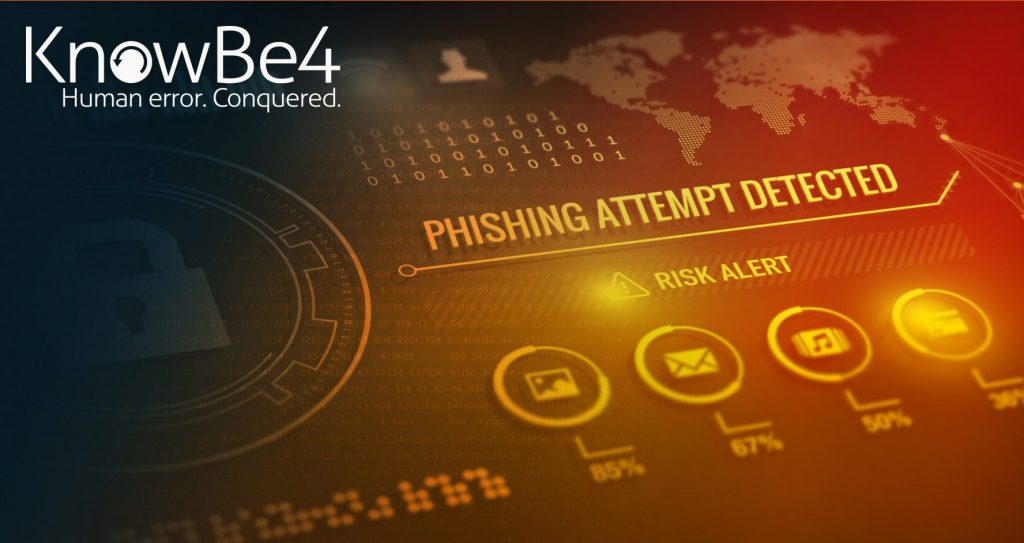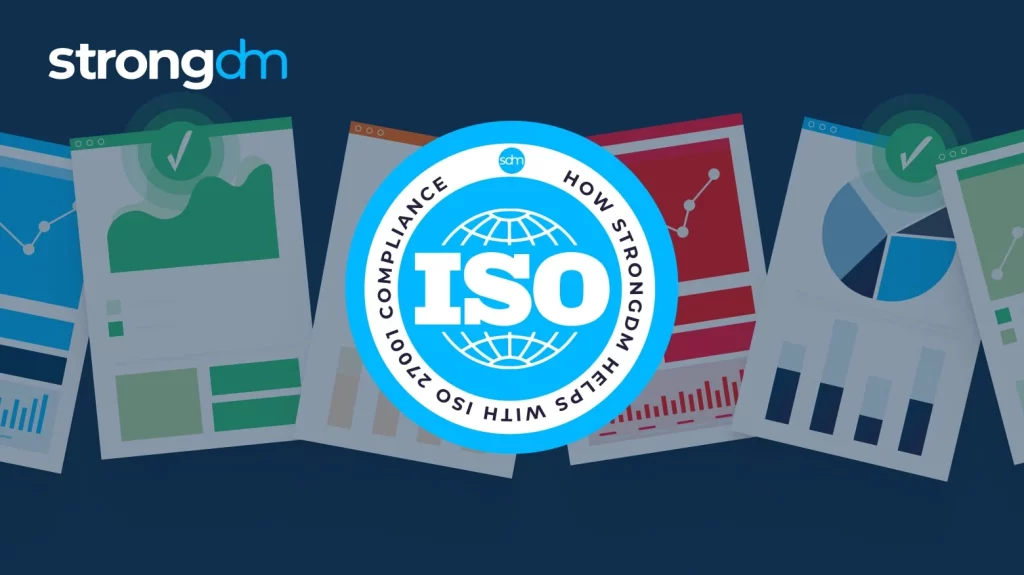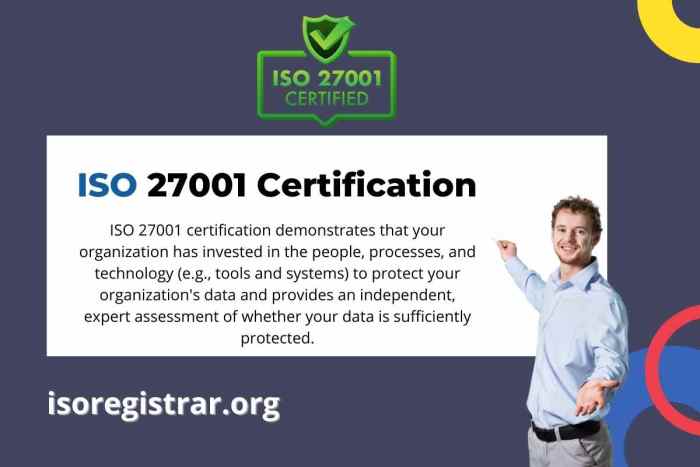KnowBe4 ISO 27001 A Practical Guide
KnowBe4 ISO 27001 compliance is crucial for modern organizations. This guide explores how KnowBe4’s security awareness training and phishing simulations can help businesses achieve and maintain ISO 27001 certification. We’ll delve into practical implementation strategies, demonstrate how to measure program effectiveness, and share real-world case studies. The key is understanding how KnowBe4’s solutions directly support each ISO 27001 control.
This comprehensive resource provides a step-by-step approach to integrating KnowBe4’s suite of products into your existing ISO 27001 framework. We’ll cover everything from tailoring content to specific risks to reporting on program results, ensuring a seamless and effective implementation process.
KnowBe4 and ISO 27001 Compliance

KnowBe4’s security awareness training and simulated phishing exercises are crucial tools for organizations seeking to achieve and maintain ISO 27001 certification. By fostering a culture of security awareness among employees, KnowBe4 directly addresses critical control areas within the ISO 27001 standard, ultimately strengthening overall information security posture.
ISO 27001 provides a comprehensive framework for information security management, covering a wide range of risks and vulnerabilities. This framework is not simply about installing security software, but importantly about building a robust security culture within the organization. KnowBe4’s role in this process is paramount, as its solutions are specifically designed to mitigate human error, a significant factor in many security breaches.
KnowBe4’s Role in Supporting ISO 27001 Compliance
KnowBe4 plays a key role in achieving ISO 27001 compliance by addressing the human element of security. Its training programs and simulations directly support the implementation of controls, reinforcing best practices and ensuring employees understand their role in preventing cyber threats. By empowering employees with the knowledge and skills to recognize and avoid phishing attempts, KnowBe4 reduces the risk of successful social engineering attacks. This reduction aligns directly with several key controls within the ISO 27001 standard, particularly those focused on security awareness and risk management.
Key Aspects of ISO 27001 and Security Awareness Training
ISO 27001’s framework emphasizes a risk-based approach to information security. This necessitates a thorough understanding of potential threats and vulnerabilities. Security awareness training, a key component of ISO 27001 compliance, educates employees about these threats, including phishing, malware, and social engineering tactics. This proactive approach empowers employees to recognize and report suspicious activities, strengthening the organization’s overall security posture. Furthermore, ISO 27001 requires organizations to establish and maintain documented information security policies, procedures, and processes. Security awareness training programs play a vital role in ensuring that these policies are understood and implemented by all personnel.
Integrating KnowBe4 Products and Services into an ISO 27001 Framework
KnowBe4’s comprehensive suite of products and services can be seamlessly integrated into an existing ISO 27001 framework. This integration enhances the effectiveness of security controls by providing a practical application of theoretical knowledge. Organizations can leverage KnowBe4’s training materials, phishing simulations, and reporting tools to build a security culture that aligns with the requirements of ISO 27001. For example, using KnowBe4’s phishing simulations, organizations can identify and address gaps in employee understanding of security best practices, demonstrating a proactive approach to risk management.
KnowBe4 Modules and ISO 27001 Controls Alignment
The table below illustrates the alignment between KnowBe4 modules and specific ISO 27001 controls. This alignment demonstrates how KnowBe4 solutions directly address critical aspects of information security management as mandated by the standard.
| KnowBe4 Module | Associated ISO 27001 Control(s) |
|---|---|
| Security Awareness Training | A.12.2.1 Security Awareness Training, A.12.2.2 Security Policy and Procedures |
| Phishing Simulations | A.12.2.3 Vulnerability Assessments, A.12.2.4 Security Awareness |
| Simulated Threats | A.12.2.5 Security Training, A.12.2.6 Security Policy Compliance |
| Vulnerability Management | A.12.2.7 Risk Management, A.12.2.8 Incident Response Planning |
Practical Implementation Strategies: Knowbe4 Iso 27001

Source: omniconvert.com
Implementing KnowBe4 solutions effectively within an ISO 27001 framework requires a structured approach. This involves meticulous planning, careful integration with existing security measures, and a focus on tailoring training content to specific organizational risks. A phased implementation, starting with a thorough assessment of current security awareness practices, is crucial for a successful transition.
A key aspect of effective implementation is recognizing that KnowBe4 is not a standalone solution. It’s most impactful when integrated into a comprehensive security awareness program that aligns with ISO 27001 principles. This integration fosters a cohesive and consistent approach to security training and risk mitigation.
Step-by-Step Procedure for Implementing KnowBe4 Solutions
A phased approach to implementing KnowBe4 solutions is vital for seamless integration into an existing security awareness program aligned with ISO 27001 requirements. This structured procedure ensures a controlled and measurable rollout.
- Phase 1: Assessment and Planning. Begin with a thorough assessment of existing security awareness programs and their alignment with ISO 27001. Identify gaps and areas needing improvement. Define specific KnowBe4 objectives that directly address these gaps. Develop a detailed implementation plan that Artikels timelines, resources, and key performance indicators (KPIs).
- Phase 2: KnowBe4 Integration. Integrate KnowBe4 modules and resources into existing security awareness platforms. Tailor content to address specific risks and vulnerabilities identified during the assessment. Establish clear communication channels for reporting and feedback. Ensure seamless user experience.
- Phase 3: Training and Reinforcement. Conduct training sessions for all employees, focusing on KnowBe4 modules and their practical applications. Implement regular reinforcement exercises and simulated phishing campaigns to maintain a high level of awareness. This reinforces learning and helps address any knowledge gaps.
- Phase 4: Monitoring and Evaluation. Monitor the effectiveness of the implemented solutions by tracking KPIs such as click-through rates on phishing simulations and employee participation in training modules. Regularly review and update KnowBe4 content to reflect evolving threats and organizational needs. This ensures continued relevance and effectiveness of the security awareness program.
Different Scenarios Where KnowBe4 Can Be Used
KnowBe4’s versatility allows for its application in various scenarios to address specific ISO 27001 controls.
- Addressing Phishing Threats. KnowBe4 offers comprehensive phishing simulations and training modules designed to raise employee awareness of phishing attempts. This directly addresses control requirements related to social engineering and phishing prevention.
- Enhancing Password Management. KnowBe4 training modules can reinforce best practices for strong password creation, storage, and management, mitigating risks associated with weak passwords. This directly addresses controls related to access management.
- Promoting Data Security Awareness. KnowBe4 training can cover the importance of data-handling procedures, data loss prevention (DLP), and the consequences of data breaches. This addresses controls related to data security and privacy.
- Improving Awareness of Malware. KnowBe4 can educate employees on various malware types, their characteristics, and how to recognize them. This helps mitigate the risk of malware infection.
Best Practices for Integrating KnowBe4 into Existing Security Awareness Programs
Effective integration of KnowBe4 requires a strategic approach that aligns with existing security awareness programs.
- Consistency with Existing Programs. Ensure KnowBe4 training materials and exercises align with the overall tone and approach of existing security awareness programs. This creates a cohesive learning experience and improves employee engagement.
- Clear Communication. Communicate the importance of KnowBe4 training to employees and highlight its role in maintaining a secure environment. Explain how participation benefits them and the organization.
- Regular Updates and Reinforcement. Continuously update KnowBe4 content to address emerging threats and vulnerabilities. Regularly schedule reinforcement training sessions to maintain a high level of awareness.
- Feedback Mechanisms. Establish clear channels for feedback from employees on KnowBe4 training materials and exercises. Use this feedback to refine and improve the program.
Tailoring KnowBe4 Content to Address Specific Risks
Tailoring KnowBe4 content to address specific risks identified in an ISO 27001 risk assessment is crucial for effective security awareness training.
- Risk Assessment Integration. Use the results of the ISO 27001 risk assessment to identify specific threats and vulnerabilities that are most relevant to the organization. Focus KnowBe4 training on addressing these identified risks.
- Customized Training Modules. Develop or adapt KnowBe4 training modules to address specific organizational risks and vulnerabilities. This personalized approach ensures that training is relevant and engaging.
- Targeted Simulations. Design phishing simulations and other exercises to mirror the specific threats identified in the risk assessment. This allows employees to practice identifying and responding to these threats in a safe environment.
- Measuring Effectiveness. Evaluate the effectiveness of tailored KnowBe4 content by measuring its impact on employee behavior and knowledge. This allows for adjustments and improvements in future training sessions.
Metrics and Reporting for ISO 27001 Compliance

Measuring the effectiveness of security awareness training programs like those provided by KnowBe4 against ISO 27001 objectives is crucial for demonstrating compliance and continuous improvement. Robust metrics and reporting are essential to track progress, identify areas for enhancement, and ultimately reduce risks. This section details how to utilize KnowBe4’s capabilities to achieve these objectives.
Effective measurement of KnowBe4 programs against ISO 27001 objectives requires a structured approach that aligns with the specific control objectives. This necessitates a clear understanding of the ISO 27001 controls being addressed by the training programs and how program effectiveness will be demonstrated.
Key Performance Indicators (KPIs) for Security Awareness Training
Defining clear KPIs is vital for assessing the impact of KnowBe4 programs on organizational security posture. These KPIs should be directly linked to specific ISO 27001 controls and measurable outcomes. Examples include completion rates, quiz scores, knowledge retention, and reported phishing attempts. Analyzing these indicators provides valuable insights into the effectiveness of the training and its contribution to risk mitigation.
- Completion Rates: Monitoring the percentage of employees who complete the assigned training modules provides a baseline measure of participation and engagement. A high completion rate suggests that employees are prioritizing training and demonstrating commitment to organizational security. However, a low completion rate could signal issues with training accessibility, clarity, or relevance, prompting a review of training materials and delivery methods.
- Quiz Scores: Assessing employee understanding and knowledge retention after the training through quizzes is a critical metric. High scores on quizzes demonstrate comprehension of the training material and the ability to apply learned concepts to real-world scenarios. Low scores could indicate that the training is not sufficiently effective or tthat he employees are not fully grasping the content.
- Knowledge Retention: Evaluating knowledge retention over time using follow-up quizzes or simulated phishing scenarios provides insight into how well the training is ingrained in employees’ behavior. This data can inform the frequency and type of future training.
- Reported Phishing Attempts: Monitoring the number of reported phishing attempts after training is a direct measure of its impact on user behavior. A significant decrease in reported attempts indicates that employees are better equipped to identify and report suspicious emails, thus contributing to the control objectives within ISO 27001.
Reporting Template for KnowBe4 Program Results
A standardized reporting template is essential for compiling and presenting data in a way that aligns with ISO 27001 requirements. This template should include relevant information, such as training program details, participant data, and key metrics.
| Metric | Data Points | Target/Benchmark | Analysis |
|---|---|---|---|
| Completion Rate | % of employees completing the training | 90% | Analysis of reasons for low completion rates (e.g., accessibility issues, lack of clarity). |
| Average Quiz Score | Average score on post-training quizzes | 80% | Assessment of training effectiveness and identification of areas requiring improvement. |
| Reported Phishing Attempts | Number of phishing attempts reported | Decrease by 20% | Evaluation of user awareness and behavioral changes after training. |
Utilizing KnowBe4 Reporting Features for ISO 27001 Compliance, Knowbe4 iso 27001
KnowBe4 provides comprehensive reporting capabilities that can be tailored to demonstrate compliance with specific ISO 27001 controls. By leveraging these features, organizations can effectively track and document training progress, participant performance, and the overall impact of their security awareness programs.
Key reporting features often include detailed reports on completion rates, quiz scores, and phishing simulations. These reports can be customized to display data aligned with specific ISO 27001 controls.
Utilizing these features ensures that the collected data directly addresses the required elements for compliance, demonstrating the efficacy of the training program in mitigating risks Artikeld within ISO 27001.
Case Studies and Examples
Organizations across various sectors are successfully leveraging KnowBe4 to bolster their cybersecurity posture and achieve ISO 27001 compliance. These implementations often involve tailoring KnowBe4’s features to meet specific organizational needs, demonstrating its adaptability and effectiveness in a diverse range of scenarios. This section will present real-world examples of successful implementations, highlighting the challenges encountered and the innovative solutions employed.
Successful implementations of KnowBe4 for ISO 27001 compliance often demonstrate how the platform’s features directly address critical controls within the standard. For instance, security awareness training programs delivered through KnowBe4’s interactive modules are crucial for fostering a security-conscious culture within the organization. This fosters a culture where employees are more likely to identify and report suspicious activities, significantly reducing the risk of security breaches.
Real-World Examples of Successful Implementations
Several organizations have effectively integrated KnowBe4 into their ISO 27001 compliance framework. These implementations demonstrate how KnowBe4’s features can directly address key controls, such as those related to security awareness training and phishing simulations.
- A financial institution, experiencing a rise in phishing attempts, implemented KnowBe4’s phishing simulation platform to identify vulnerabilities within their employee base. Through regular simulations, the institution identified weak spots in employee security awareness. This proactive approach led to a marked decrease in susceptibility to phishing attacks. The integration of KnowBe4’s reporting features enabled the institution to track employee performance and identify areas needing further training, ensuring a consistent improvement in security awareness.
- A healthcare provider, aiming for ISO 27001 compliance, everaged KnowBe4’s security awareness training modules to educate employees on the sensitive nature of patient data. The platform provided interactive scenarios relevant to the healthcare industry, ensuring employees grasped the importance of data protection. The training program included regular assessments to gauge knowledge retention and reinforce key concepts. By focusing on real-world scenarios, the training effectively reduced the risk of data breaches and reinforced compliance with industry regulations.
- A manufacturing company used KnowBe4 to conduct regular phishing simulations and security awareness training, targeting specific departments with different risk profiles. This tailored approach addressed the unique security concerns of each department. By analyzing the results of the simulations, the company identified specific training needs and developed targeted interventions to improve overall security awareness. The manufacturing company further integrated KnowBe4’s reporting functionality to generate comprehensive reports on training completion, simulation results, and identified vulnerabilities.
Challenges Faced and Solutions Implemented
Implementing ISO 27001 compliance often presents challenges, especially regarding employee buy-in and the need for continuous improvement.
- One common challenge is securing consistent employee engagement with security awareness training. Organizations addressed this by tailoring training materials to resonate with specific employee roles and responsibilities. This approach fostered a sense of ownership and motivation to participate in the training.
- Maintaining a high level of security awareness requires continuous reinforcement. Organizations achachieveis by integrating regular phishing simulations into their security program, keeping employees engaged and aware of evolving threats. This continuous improvement approach reinforced the importance of vigilance in the face of ever-changing cyber landscapes.
How KnowBe4 Addresses Specific ISO 27001 Controls
KnowBe4’s features directly support various ISO 27001 controls, such as those related to security awareness training and phishing simulations.
- KnowBe4 provides interactive and engaging security awareness training, addressing control A.12. This control emphasizes the need for security awareness training to be tailored to specific roles and responsibilities within the organization. KnowBe4’s customizable training materials ensurethat employeess receive relevant and effective training, minimizing risks specific to their functions.
- Phishing simulations, a key feature of KnowBe4, address control A.11, which mandates regular security awareness testing. By simulating phishing attacks, KnowBe4 helps organizations identify vulnerabilities in employee behavior and reinforce best practices.
Integration with Other Security Tools
KnowBe4 seamlessly integrates with various security tools commonly used in ISO 27001-compliant environments.
- Many organizations integrate KnowBe4 with their SIEM (Security Information and Event Management) systems to gain a comprehensive view of security events and incidents. This integration helps correlate phishing attempts with other security events, enabling a more thorough investigation of potential threats.
- Integration with other security platforms, such as vulnerability management tools, allows for a more holistic security posture. This comprehensive approach ensures that organizations address both human and technological vulnerabilities, enhancing their overall security posture and adherence to ISO 27001.
Final Review
In conclusion, implementing KnowBe4 solutions effectively aligns with ISO 27001 requirements, significantly strengthening your organization’s security posture. By understanding the practical strategies and metrics in this guide, you can leverage KnowBe4 to achieve, maintain, and demonstrate ISO 27001 compliance. The provided examples and case studies further highlight the tangible benefits and real-world applicability of this approach.





